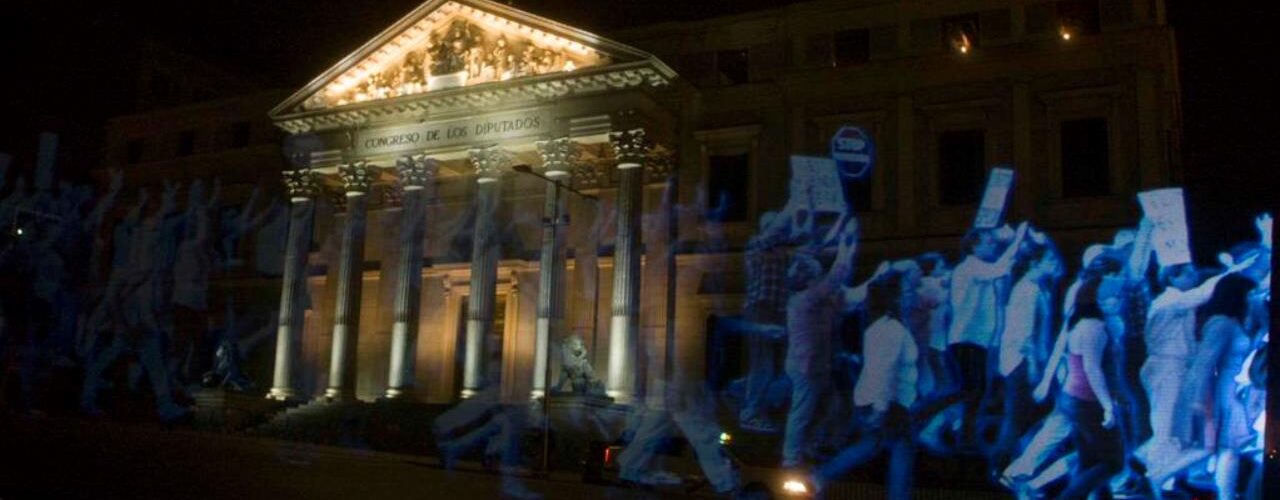Last Saturday, thousands marched past the Spanish parliament building – in holographic form – against a new law they say curtails civil liberties. The protest was in response to the Citizen Safety Law, which places fines and restrictions on where citizens can protest.

The event was organised by ‘No Somos Delito’ (‘We are not a crime’), an umbrella group representing over 200 organisations in Spain. The group created the ‘Holograms for Liberty’ website where sympathizers can virtually participate by webcaming their faces into the hologram protest.
Speaking to El Mundo, the spokesperson for the group made the point of the protest very clear: “With the restrictions we’re suffering on our freedoms of association and peaceful assembly, the last option that will be left to us in the end will be to protest through our holograms.”














